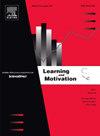中国英语学习者对人工智能(AI)技术的准备程度调查:计划行为理论视角
IF 1.7
4区 心理学
Q3 PSYCHOLOGY, BIOLOGICAL
引用次数: 0
摘要
随着人工智能(AI)技术在人类生活和职业的各个方面的迅速转变,第二语言和外语(L2)教育者和从业者强调了人工智能的准备和素养,以帮助学生成功学习英语。然而,关于中国英语作为外语(EFL)的学生在他们的第二语言学习中准备接受和实施人工智能工具的程度,尚无足够的实证证据。为了解决这一问题,本研究运用计划行为理论,对283名来自中国不同大学的英语学生进行了调查。单样本t检验和描述性统计的结果显示,中国英语学生在第二语言教育中表现出高于平均水平的人工智能准备,这反映了TPB的三个维度(即态度、主观规范和感知行为控制),强调对人工智能工具的积极态度和意图。在人工智能准备程度的3个子因素(道德、能力、愿景)中,他们的得分也高于平均水平。只有认知维度低于平均水平。本文讨论了与TPB相关的结果,并为英语学生和教师在第二语言教育背景下保持和发展他们的人工智能准备水平提供了实际意义。本文章由计算机程序翻译,如有差异,请以英文原文为准。
Investigating Chinese English learners’ readiness for Artificial Intelligence (AI) technologies: A theory of planned behavior (TPB) perspective
With a rapid shift toward the use of Artificial Intelligence (AI) technologies in various aspects of human life and career, second and foreign language (L2) educators and practitioners highlighted AI readiness and literacy for students to succeed in learning English. However, there is insufficient empirical evidence on how much Chinese English as a foreign language (EFL) students are ready to accept and implement AI tools in their L2 learning. To address this gap, drawing on theory of planned behavior (TPB), the present quantitative study employed a survey with 283 EFL students from different Chinese universities. The results of a one-sample t-test and descriptive statistics revealed that Chinese EFL students had demonstrated an above-average level of AI readiness in their L2 education reflecting the three dimensions of TPB (i.e., attitudes, subjective norms, and perceived behavioral control) through an emphasis on positive attitudes towards and intentions to adopt AI tools. They also showed higher than average scores in three sub-factors of AI readiness (i.e., ethics, ability, and vision). Only the cognitive dimension was below the average point. The results are discussed in relation to TPB and practical implications are provided for EFL students and teachers to maintain and develop their level of AI readiness in the context of L2 education.
求助全文
通过发布文献求助,成功后即可免费获取论文全文。
去求助
来源期刊

Learning and Motivation
Multiple-
CiteScore
2.90
自引率
0.00%
发文量
53
期刊介绍:
Learning and Motivation features original experimental research devoted to the analysis of basic phenomena and mechanisms of learning, memory, and motivation. These studies, involving either animal or human subjects, examine behavioral, biological, and evolutionary influences on the learning and motivation processes, and often report on an integrated series of experiments that advance knowledge in this field. Theoretical papers and shorter reports are also considered.
 求助内容:
求助内容: 应助结果提醒方式:
应助结果提醒方式:


